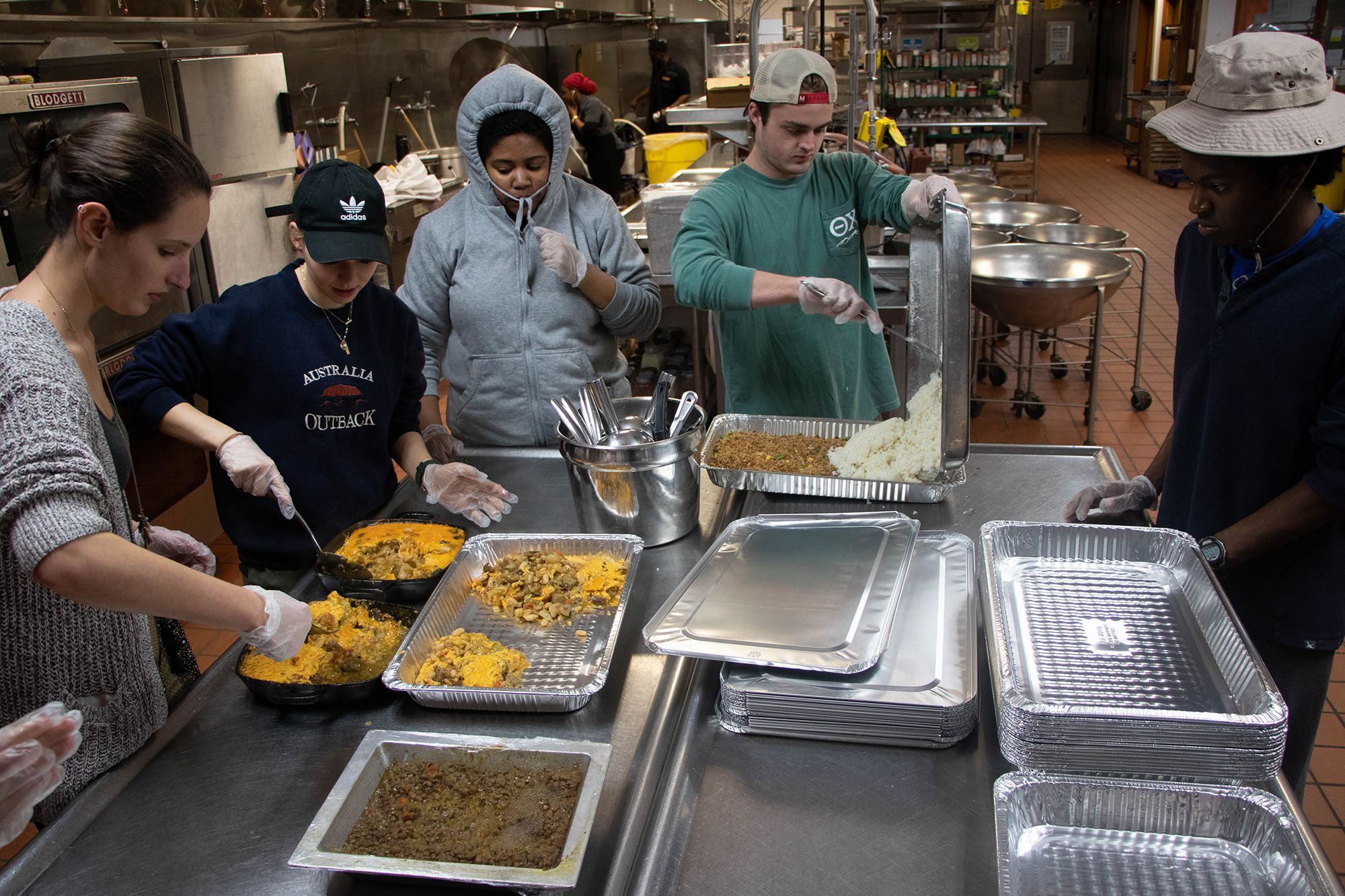The Food Recovery Network — a nationwide group that recovers leftover food from campus dining facilities and delivers it to local shelters and food banks — began at the University of Maryland in 2011. But recent DOTS budget cuts have hindered its operations at this university.
The network, which has expanded to 230 chapters, recovers leftover food from campus dining facilities and delivers it to local shelters and food banks. It previously relied on buses provided by the Department of Transportation Services to move food and volunteers.
But last semester, due to a budget shortfall of $188,000, the department told volunteers they could no longer provide free transportation, said DOTS spokesperson Cara Fleck Plewinski.
“It hit us hard in the beginning of the semester,” said Lames Alkebsi, FRN’s social media executive and a senior architecture major.
[Read more: UMD’s food pantry is fundraising for a $1 million upgrade]
FRN’s mission, according to its website, is to alleviate hunger by recapturing food that would otherwise go to waste. This university’s chapter began by collecting food from 251 North and catering services, and has since expanded to include the North and South Campus Dining Halls, among other locations and events.
To continue providing its services to food banks, the group has enlisted student drivers. But Alkebsi said that’s not ideal — since the organization picks up food from each dining hall at about 11:30 p.m. up to five nights a week, it’s difficult to find students to drive.
“The Food Recovery Network has been struggling,” she said. “We relied on [DOTS], and they were very gracious with us to give us literally a ride every single day for free to our shelters.”
It cost DOTS $14,000 to transport the FRN last year, Fleck Plewinski said. While the department offered a discount — which would amount to the network paying $1,600 a semester or $80 a ride — FRN treasurer Anna Wunsch said that’s wasn’t feasible.
The group already requests the maximum amount from the Student Government Association each year — $1,500. All of that goes toward the 4,000 aluminum pans that the FRN uses to transport the food every semester, Wunsch said. This leaves no money leftover for transportation, she added.
“There’s pretty much no wiggle room because you can’t apply for more than that,” Wunsch said.
[Read more: UMD DOTS plans to cut buses, raise parking ticket fees and block parking for sophomores]
FRN has still kept the pace this semester despite the changes. In fall 2018, this university’s chapter recovered more than 18,400 pounds of food, according to its website. Since its founding, the network has recovered more than a quarter of a million pounds.
But Wunsch, a senior agricultural science and technology major, said the absence of the buses has limited the FRN’s ability to expand beyond that.
“Because we had the buses, we were able to expand more than could be supported otherwise,” Wunsch said. “So now that the buses aren’t there, we’ve had to sort of figure out how to cope with that.”
FRN delivers food to the Family Crisis Center of Prince George’s County and Christian Life Center in Riverdale Park, which then distribute the food to a host of shelters throughout the area.
CLC Pastor Ben Slye, who works closely with the FRN, said losing DOTS’ buses has caused challenges for operations. While there is no shortage of student volunteers, finding those who can drive is more difficult, he said.
“Really often, they’re not able to bring all the food each night,” Slye said. “When we had the buses, of course, they were able to load up all three dining halls because they had plenty of space.”
Alkebsi said working with DOTS provides reliability and a sense of professionalism for the chapter. The group is still considering allocating money to pay for DOTS’ services, but has struggled to come up with funding in a way that would allow them to continue collecting food at the same rate.
In addition to the food it receives from the FRN, the CLC distributes 8,000 to 10,000 pounds of fresh produce each week through a separate program. But those who cannot go to the CLC and do not have other sources rely on the food distributed via the FRN, he said.
“The Food Recovery Network has been incredible — [the food is] already prepared, already cooked, the only thing it has to do is be warmed up,” he said. “Many of these folks would not have meals without this food.”



